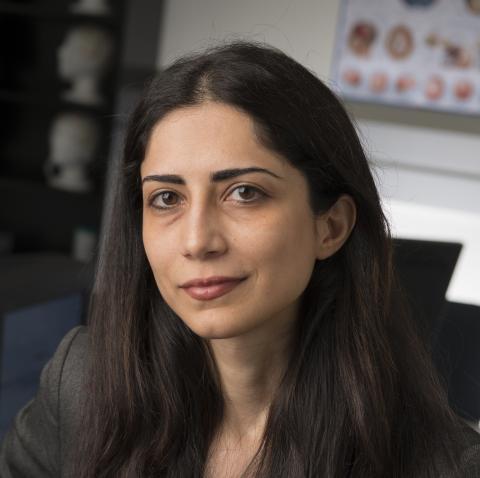ECE Associate Professor Laleh Najafizadeh is the recipient of a new National Institutes of Health (NIH) award for the research project titled "Augmenting Implanted Neuroprosthetics with Targeted Health Monitoring for Spinal Cord Injury - the LIFELINE" through the National Institute of Biomedical Imaging and Bioengineering. This 4-year collaborative R01 grant led by Case Western Reserve University is funded at $2.6 million with Rutgers share being $262,560.
In this project, Dr. Najafizadeh will work with her collaborators to develop an implanted health monitoring device, called the "Lifeline" device, which senses health-related parameters, including temperature, electrocardiogram, photoplethysmogram, inertial measurement, and acoustic signals. The Lifeline device will be designed as an integral component of the "Networked Neuroprosthesis" (NNP) for patients with spinal cord injury (SCI). The NNP system provides a platform for implementing and evaluating the benefits of implanted health monitoring while minimizing the development costs and regulatory hurdles. An exciting outcome of the Lifeline-enhanced NNP system is the capacity to provide advanced warning regarding the top causes of increased mortality in individuals with SCI, enabling earlier detection and medical intervention that may ultimately increase the overall life expectancy of patients. The causes of early mortality include pneumonia, urinary tract infection (UTI), pulmonary embolism (PE), and autonomic dysreflexia (AD), which are unique to, or more prevalent in, people with SCI (particularly tetraplegia). The addition of the Lifeline device to the NNP system is the first step towards an implantable "life-saving neuroprosthesis". The completion of this project will result in a single modular system that will be capable of providing both improved health and improved function for anyone with SCI, thus prolonging life while, at the same time, increasing independence and quality of life.
More details on the project can be found here.
Congratulations, Laleh!

